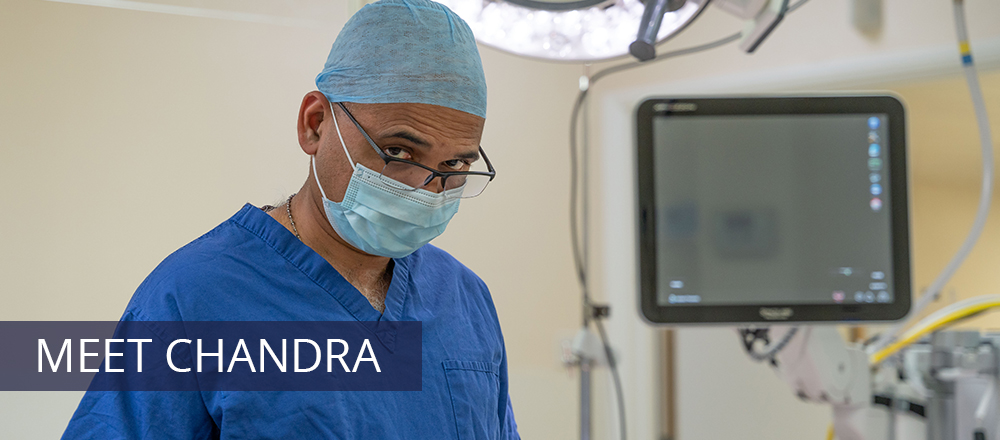Hip Replacement Surgery
As the name suggests, hip replacement surgery replaces the worn out hip joint with a prosthetic (artificial) joint. Total hip replacement, although dating back to the 1940’s, was advanced in the UK in the 1950’s and 60’s by Sir John Charnley. Today, over 55,000 total hip replacements are performed in the UK each year. There are now many different types of hip replacement available. The most widely used consist of a metal ball articulating with a plastic socket. Some hip replacements are designed to be used with orthopaedic cement, which acts as a grout; others are designed to encourage bone growth onto the prosthesis to give long term stability (uncemented).
It is the plastic liner that wears out with time, probably related to activity levels. Technological advances, however, have produced bearing surfaces which can withstand higher activity levels and will therefore wear out more slowly. These newer bearing surfaces are either metal-on-metal or ceramic-on-ceramic. Patients who are young and physically active may benefit from these newer hip replacements since the risk of implant failure is reduced.
WHAT ARE THE BENEFITS OF HIP REPLACEMENT?
The majority of patients experience the following benefits following hip replacement:
- Abolition or at least a significant reduction in hip pain
- Improvement in life quality
- Return to normal daily activities and low impact sports
- Sleeping without pain
- Improvement in leg strength as a result of a return to more normal levels of activity
- Years of reliable function
THE OPERATION
Patients are usually required to attend a Pre-admission Clinic a couple of weeks before the proposed operation date; investigations will be undertaken and the operation discussed.
Hip replacement surgery involves an inpatient stay of 3-5 days; the patient will generally be admitted the day before the operation. The consultant and anaesthetist will see the patient prior to surgery and the hip undergoing the replacement will be marked.
Most hip replacements are performed under a spinal anaesthetic (where the patient is awake but normally sedated), but occasionally a general anaesthetic is used. The hip is dislocated so that the damaged femoral head can be removed and replaced with a femoral component (the ball), the stem of which is inserted down the centre of the thighbone. The damaged acetabulum of the pelvis is shaped so that the new prosthetic socket can be inserted.
At the end of the operation a dressing is applied to the wound. Foot pumps, elastic stockings and occasionally an injection to thin the blood are used to lower the risk of blood clots forming in the legs.
POSTOPERATIVE RECOVERY
Post-operative pain is normal after a hip replacement. It can be controlled by many methods, from pain pumps (Patient Controlled Analgesia, PCA) to simple tablets, and usually lessens dramatically after the first 2-3 days. The pain of arthritis usually disappears within a day or two of surgery.
Occasionally, the bladder stops working after a spinal anaesthetic; a catheter may need to be inserted into the bladder for a day or two. Once removed, most people have normal return of bladder function.
Blood tests and X-rays will be taken in the early post-operative period to ensure that blood levels have not substantially changed and that the hip replacement is in a satisfactory position.
Rehabilitation
The physiotherapists will assist patients in mobilising after the operation and will supervise an exercise programme. It is extremely important that patients follow this exercise programme and take the necessary precautions with their new hip.
Patients can usually return to work after 8-12 weeks although this period may be longer for heavy manual work. By three months most patients can participate in low impact sports such as golf, bowls, cycling and swimming.
Complications
The majority of patients undergoing hip replacement do not experience any complications. In fact 95-98% of patients are extremely happy with their hip replacement and report that it has given them back their life. However no operation can guarantee success.
Complications can occur as a result of the anaesthetic, the hip replacement itself or as a general result of having major surgery.
CONTACT INFORMATION
Private Secretary: Jo Evans
joanne.evans66@nhs.net
NHS Secretary: Jo Brindle
jo.brindle@wvt.nhs.uk







